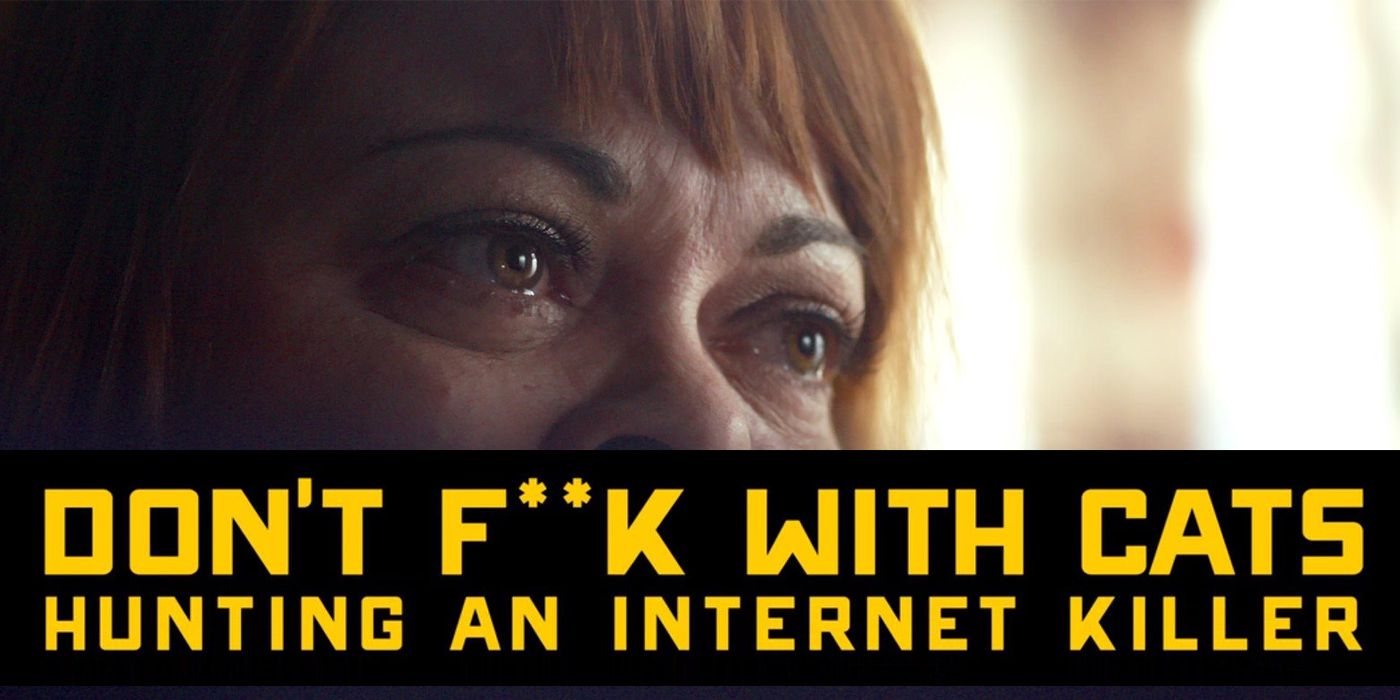Netflix’s true-crime docuseries Don’t F**k With Cats is highly rated and deeply divisive, but its problems should not be ignored. According to an infographic released by Netflix this week, Don’t F**k With Cats: Hunting an Internet Killer was the fifth most popular original documentary release of 2019 on the streaming service (Netflix's metrics for measuring this are highly unreliable and, as with all things on the platform, there is no way to confirm or disprove what they say, however). The three-part docuseries dived into the violent crimes of Canadian murderer Luka Magnotta and the amateur internet detectives who dedicated their time to identifying and finding him after viewing videos of him torturing and killing kittens online.
The Luka Magnotta story is one that is still very raw for Canadians and a case that leaves a lingering stain on both online discourse and the wider nature of true-crime as a genre of entertainment. Magnotta is currently serving a life sentence in a Quebec prison for the murder of Chinese student Lin Jun, among other charges, but he continues to have a depressingly larger-than-life presence online and off, thanks to his own narcissism and further media interest. You can still find the videos of his abhorrent crimes online with relative ease. It’s not hard to see why the filmmakers of Don’t F**k With Cats would be so interested in this story: it features many fascinating and disturbing elements, while offering a striking insight into the evolving nature of crime in the modern age and how it intersects with the internet and celebrity.
Taking on this story was always going to be an arduous task for any director, one with countless potential pitfalls that require immense empathy and contextual understanding. Sadly, the triggering Don’t F**k With Cats fails to achieve these goals, as well as the ones it set for itself and ends up giving in to the worst aspects of true-crime as a medium of entertainment for the masses.
What Don’t F**k With Cats Does Wrong
Documentaries are defined by their intention to document reality, but that doesn’t mean they are 100% objective or free of agendas. True-crime, in general, is frequently motivated by an urge for justice, be it to further condemn the accused or exonerate them, as has been the case for recent hits in the genre like Making a Murderer. Don’t F**k With Cats sets itself two clear aims: one, to show how internet sleuthing helped to bring Luka Magnotta to justice, and two, to ask how the attention said detectives and the media at large reaped upon Magnotta may have fuelled his murderous spree even further. The big issue with the documentary is that it fulfills neither of these objectives because it is so overly concerned with the silent third aim, one that unites true-crime in a manner that has always been problematic: the requirement to provide a gripping and entertaining narrative for viewers that will convince them to keep watching.
Don’t F**k With Cats starts off interestingly enough, digging into the labor required of online detectives to find out the anonymous culprit behind the sick viral videos of kitten murder as well as his location. These moments of insight are sadly fleeting as, when Magnotta is unmasked as the killer, the documentary turns its focus to being a more traditional true-crime report on the criminal himself. From thereon, the series becomes a tad too enamored with Magnotta as a protagonist of sorts, showing clips from those viral videos and playing up the idea that he was a mastermind of crime akin to Catherine Trammel from Basic Instinct, whom seemed to be one of his biggest inspirations. As such, not only does the documentary seem to stop caring about its original intent, but its initial set-up means they cannot help but essentially smudge out Lin Jun, Magnotta’s victim, from his own story. The title, a cute attention-grabbing joke, suddenly feels far too glib for the story in hand.
In regards to their second objective, Don’t F**k With Cats decides to dump all that into an insulting final scene where one of the internet sleuths turns to the camera and tries to blame the audience for heaping attention on Magnotta and possibly encouraging him to commit further crimes of increasing violence to sate his desire for attention. It’s a glib climax that the docuseries has done none of the work in establishing, and it certainly doesn’t work as a kicker when they’ve spent three hours trying to turn this story into a gripping, lurid tale to keep audiences binge-watching over their Christmas break. Whatever intentions they had and however noble they were, Don’t F**k With Cats ends up embodying the worst of true crime's more voyeuristic and complicit elements, even as it tries to point the finger at the audience it so desperately wanted to entertain.


